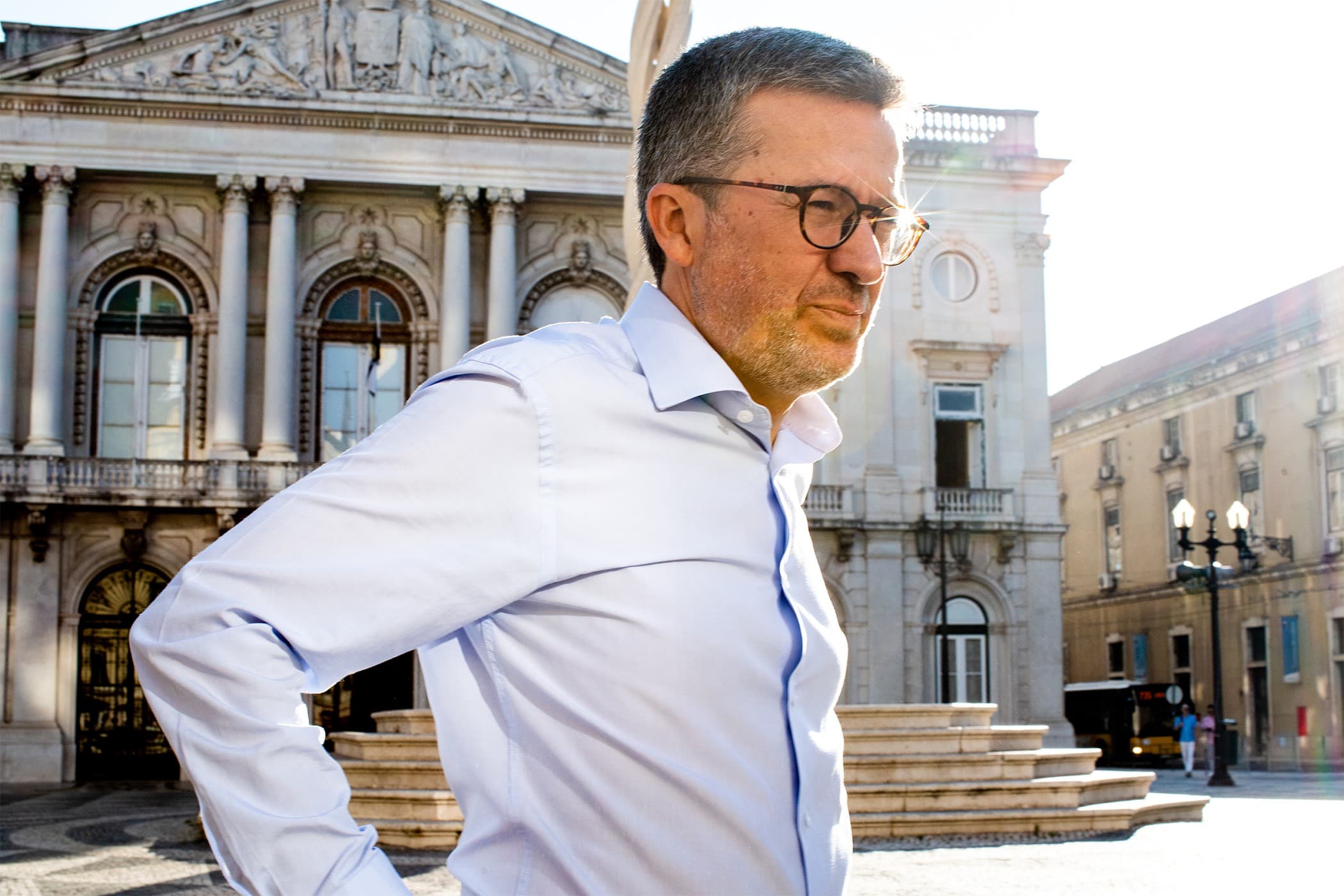The mayor pointed out that 66,000 people live in Lisbon’s municipal districts, “more than 10% of the city’s population”, in 22,000 houses and apartments, and that the 85 million euros come from the PPR.
Lisbon mayor Carlos Moedas announced on Tuesday that an additional 85 million euros, on top of the existing 40 million, would be allocated to the municipal housing intervention and rehabilitation plan.
“We already had the biggest investment package. We had 40 million euros for municipal districts. When we arrived [as mayor], the [housing] councillor said that there were two thousand people in Lisbon who were not living in decent conditions and this investment package of 40 million plus 85 million euros is not only for new construction, but also for properties that were closed and abandoned,” said Carlos Moedas.
The Lisbon mayor was speaking at the Bairro dos Alfinetes, in the parish of Marvila, on the occasion of the launch of the Morar Melhor (Living Better) program, under which rehabilitation work will be carried out in 11 municipal districts.
According to Carlos Moedas, the 85 million euros announced on Tuesday are part of the government’s recovery and resilience plan, through the First Law program, as well as Lisbon City Council.
The mayor recalled that, of Lisbon’s two thousand vacant homes, 500 have already been returned, and this year’s target is 800.
“Yesterday [Monday] we reached the figure of 1,148 keys handed over in Lisbon. Of all the housing projects, I think it’s a very great achievement, in a year and a half, that we’ve helped 1,148 people by giving them the key to their home,” he stressed.
The mayor of Lisbon also pointed out that the municipality “will pay part of the house rent” for a further 1,000 people.
The Morar Melhor program, to be carried out by Gebalis – Gestão do Arrendamento da Habitação Municipal de Lisboa in 11 districts, 129 buildings and more than 2,000 fractions, also includes work on elevators.
According to Carlos Moedas, there is an allocation of “4 million euros to invest solely in elevators”, which the mayor says are one of the biggest complaints of residents, because they are often out of order.
The Bairro dos Alfinetes, a district made up of buildings constructed between 1995 and 2001, was chosen to be the first to benefit from renovation work because it is the “highest priority, where conditions are most difficult”, according to the mayor of Lisbon.
The mayor recalled that 66,000 people live in Lisbon’s municipal neighborhoods, “more than 10% of the city’s population”, in 22,000 houses/apartments.
“Every day, we try to do more. We will draw on all the resources of the RRP and Europe, because this is a unique moment. We have over 400 million euros from the RRP to change people’s lives,” he declared.
Of the 11 districts involved – 2 de Maio, Açucenas, Alfinetes, Boavista, Bom Pastor, Condado, Flamenga, Nascimento Costa, Padre Cruz, Rego and Telheiras Sul – seven are included in the Special Rehousing Program (PER), implemented since 1993 to eradicate shacks in the metropolitan areas of Lisbon and Porto.
This intervention and rehabilitation plan in 11 neighborhoods has “a strong social component, involving above all the maintenance and reinforcement of community security, as well as the necessary general well-being of the population”, according to Gebalis.
In Bairro dos Alfinetes, work will cover a total of seven buildings and 68 fractions, with interventions planned on roofs and facades, to “offer the building greater architectural harmony, safety, comfort and better living conditions for residents”, explained municipal contractor Gebalis.
The Morar Melhor program will continue over the coming weeks at Bairro Padre Cruz, in the parish of Carnide, and at Bairro da Boavista, in Benfica.
Present at the ceremony, Fernando Angleu, Chairman of Gebalis’ Board of Directors, recalled that the major interventions in Lisbon’s municipal districts, which begin this Tuesday, “fully reflect the commitment and effort of Lisbon City Council and Gebalis to guarantee the community the quality of life and housing comfort that everyone deserves”.
Stressing that the Morar Melhor program is “a key instrument” for achieving these objectives, Mr. Angleu indicated that the work should be completed within 18 months.










